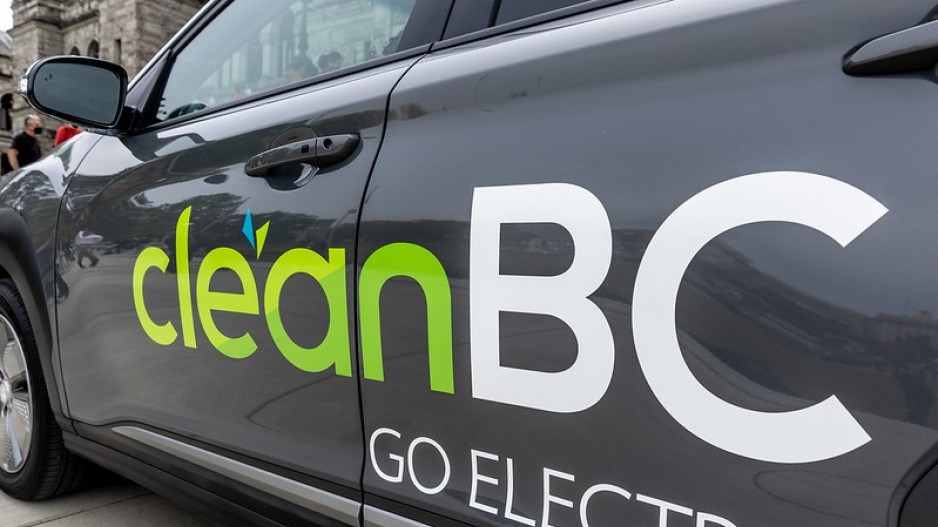Ashamed to admit it, I somehow missed the news about the global competition to be the first jurisdiction to enshrine in law the requirement to only sell electric vehicles.
I didn’t realize there was this planetary race. But there you have it, and we have a winner: The BC NDP government.
Its energy, mines and (have to love this title) low carbon innovation minister bragged last week B.C. will be “first in the world” to convert a policy into a law, set a schedule for vehicle sales over the next dozen years, and penalize dealers who dare to sell new gas-guzzlers in 2035.
Just before I sat down to write, I searched the internet’s reaches for others elsewhere feeling sheepish and inferior losing the worldwide jockeying for supremacy. Still looking.
The winning contest prize is that our government will enable us to spend more of our money on ourselves to make the vehicles and their charging stations slightly less unaffordable through subsidies and rebates with no end in sight. Our public finances are in such tip-top shape to accommodate this, of course.
And note the timeline – not the 2040 deadline we had been told for some time. No, we now have an earlier date of 2035 (probably another gold medal at that finish line), something the province’s brain trust is comfortable projecting out based on early-stage, subsidized EV sales that now are barely one-in-five.
The pretension, hubris, delusion and danger of this law is that a government can impose a distortion on the consumer market and penalize those buyers and sellers who don’t play along. Auto dealers are correctly having an SUV-sized fit. If they were consulted at all, they weren’t heard.
I’ve been driving an EV for nearly five years now and admit I love it. But it is foolhardy to think each new car and truck we buy in a dozen years will be electrically powered. The government itself has set only a 26-per-cent sales target for 2026.
The flight of vehicle manufacturers from combustion engines is palpable, particularly given the financial assistance they can receive to do so from taxpayers. Let’s not talk about the multi-billion-dollar battery plant support in Ontario.
There remain good questions about whether EVs are indeed an ideal environmental answer to our high-emitting transportation.
There is first the sticker shock. Clean Energy Canada suggests that an EV can save 30 per cent over a 10-year period over a gas-powered vehicle, but the problem now and for what seems to be years yet is that the entry point (even subsidized) is exhorbitant.
B.C’s $7 million announcement last week to subsidize home and business charging stations is a pittance. For businesses depending of constant and efficient travel (taxis, transport, trucks), charging infrastructure requires gigantic investment to emulate the gas station’s in-and-out experience.
Then there’s the lifestyle piece. Sure, cities are becoming Tesla towns, but any trip beyond the tony urban centres into more challenging roads reveals a world of grumbling engines today that will feature grumbling drivers tomorrow if they are pushed from purchasing another one and another one and another one. Even if bought with their own money.
It takes me to the question: Why are we thinking it makes sense to lead on this issue? Why be the ones bearing the hardest of the lessons of leadership? Ah, yes, self-congratulatory ideology.
Government enthusiasm would be more supportable if it weren’t apparent EVs come with their own environmental problems. Yes, greenhouse gas emissions from EVs are zilch, but manufacturing emissions are higher – 70 per cent higher, says Volvo – than those of the traditional vehicles. That owes mainly to their lithium-ion batteries that are dirty resource hounds to create, only to run their course over about a decade and head to landfill. (In my car’s case, I learned its cabin was made in Washington state, shipped to Germany to be put in the car, then shipped back to North America. Quite the planet-saver.)
While we are blessed in B.C. with abundant electricity, more and more an EV seems to be a transitional technology. Hydrogen fuel cells might be the eventual, sustainable solution.
Rather than rivet on the shiny new thing, I’d like to see our governments choose to extend the lifespan of what we have on the road, like hastening development of synthetic fuels to delay our vehicles’ trek to the junkyard. Let’s lead the world in that. I sense a contest coming on.
Kirk LaPointe is publisher and executive editor of BIV and vice-president, editorial, of Glacier Media.




